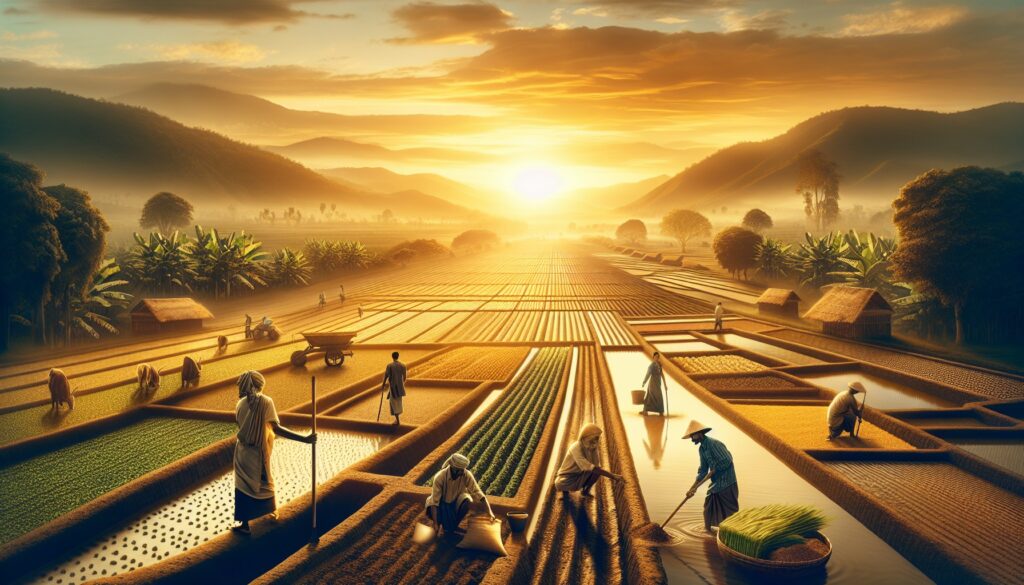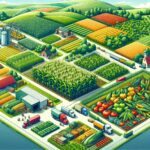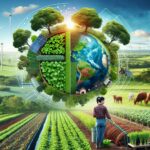The Importance of Agriculture: Cultivating the Roots of Society
Agriculture has always been the backbone of human civilization, shaping societies and economies for thousands of years. As one of the most vital sectors, its importance stretches beyond merely producing food. It touches every aspect of our lives, from the meals we enjoy to the clothes we wear and even the air we breathe. Let’s explore why agriculture holds such a crucial place in our world today.

1. Food Security
At the heart of agriculture lies its most fundamental purpose: providing food. With the global population rising steadily, ensuring a reliable food supply has become more important than ever. Agriculture ensures that the essential crops and livestock needed to feed billions of people are produced consistently. It creates a stable source of sustenance, allowing societies to thrive and develop without the constant threat of famine.
2. Economic Development
Agriculture is a key driver of economic growth, especially in developing countries. By providing employment to a large portion of the population, it plays a significant role in reducing poverty. Farming not only provides food but also produces raw materials for various industries, including textiles, pharmaceuticals, and biofuels, all of which contribute to economic growth.
3. Sustainability and the Environment
Modern agriculture, when practiced sustainably, helps maintain a delicate balance with the environment. Through responsible farming methods, we can ensure that the land remains fertile for future generations. Crop rotation, organic farming, and reduced chemical usage contribute to healthier soils and ecosystems, safeguarding biodiversity. In addition, certain agricultural practices like agroforestry can improve carbon sequestration, helping mitigate climate change.
4. Cultural Heritage
Agriculture is not just about growing crops; it’s deeply rooted in cultural traditions and practices. Each region has its own farming methods, crops, and celebrations tied to the harvest season. These agricultural practices preserve a rich cultural heritage that passes down through generations, fostering a sense of community and continuity.
5. Innovation and Technological Advancements
As the world progresses, so does agriculture. Technological advancements such as precision farming, genetic modification, and vertical farming are helping to increase yields and reduce waste. These innovations are critical in ensuring that agriculture remains resilient in the face of challenges like climate change, soil degradation, and water scarcity.
6. Health and Nutrition
Agriculture plays a vital role in ensuring that we have access to nutritious food. With greater awareness of the importance of healthy eating, agricultural practices are shifting towards producing crops that are not only plentiful but also nutrient-dense. Fresh fruits, vegetables, grains, and legumes produced through agriculture help combat malnutrition and promote healthier societies.
7. Community and Social Stability
In many parts of the world, agriculture is central to community life. Farming activities provide livelihoods for rural families, creating a strong sense of social cohesion. In times of global uncertainty, agriculture can offer a sense of stability. During economic downturns or global crises, the ability to grow and produce food locally offers communities security and resilience.
Conclusion
Agriculture is far more than an economic activity—it is the foundation of human life. As we move toward a future shaped by technological advancements and environmental challenges, it is important to recognize the pivotal role agriculture plays in supporting our societies. Through sustainable practices and continuous innovation, agriculture will remain a cornerstone of our world, feeding, clothing, and nurturing us for generations to come.



